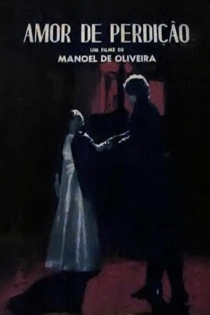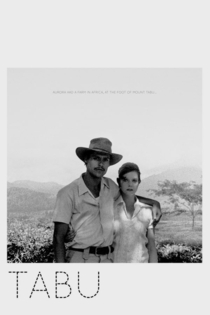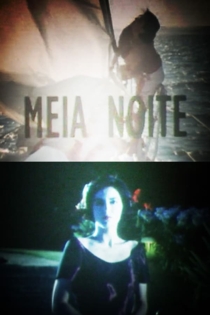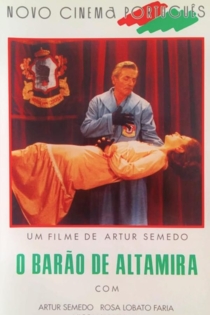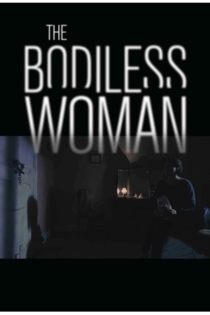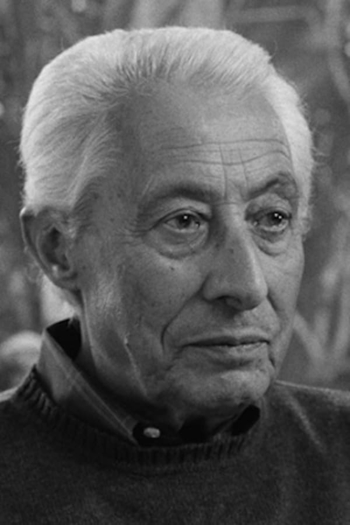
Henrique Espírito Santo
1931 - 2020As Armas e o Povo
Glauber Rocha, Fernando Lopes
Glauber Rocha, Adelino Gomes
Film directors with hand-held cameras went to the streets of Lisbon from April 25 to May 1, 1974, registering interviews and political events of the Portuguese "Carnations Revolution", as that period would be later known.
As Armas e o Povo
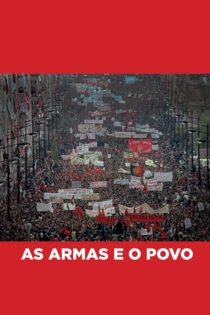
O Ilhéu da Contenda
Leão Lopes
João Lourenço, Luísa Cruz
Cape Verde, 1964. At the feet of a mighty volcano, the traditional Cape Verdean society is undergoing a steady change. The old land-owning aristocracy is disintegrating. A class of "mulattos" begins to emerge, with a trade-based financial power that threatens the landlords. A new identity arises, a mix of old and new, of African and Portuguese culture, sensual and dynamic. The songs of Cesária Évora follow this inevitable transformation. From the novel by Henrique Teixeira de Sousa.
The Island of Contenda
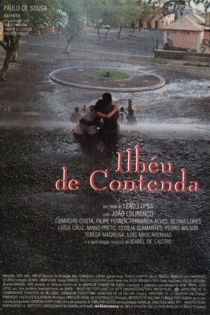
Jogo de Mão
Monique Rutler
Amílcar Botica, Márcia Breia
In a unique approach to what amounts to four pseudo-morality plays, director Monique Rutler has a street entertainer with hand puppets summarize the characters and idea of each story. The first sketch is about a young man who shines shoes for a living, and tries to keep up a relationship with two women while convincing each she is his only true love. The next story is about a man who beats up his wife when he is drunk, and sells furs for a living. One day, as she is riding in the back of his truck with the furs, he hits a bad patch and she and some furs fall out. The question is, will the woman be enterprising and leave the jerk - or not? The third tale concerns a woman looking into how much control a prostitute has over her clients, and to really find out, she becomes a prostitute herself for awhile - leading to some quite unexpected situations. The last segment handles the uglier side of the life styles of the rich and famous.
Jogo de Mão

Relação Fiel e Verdadeira
Margarida Gil
João César Monteiro, Laura Soveral
The young girl, Antónia Margarida Castelo Branco, is handed over by her mother to Brás Telles de Meneses because of the obscure interests between rural aristocratic families in the North. Brás is a ruined man, a bohemian with a reputation for violence and erratic behaviour. Antonia’s fortune is the first sacrifice made by the young wife. Fascinated by the man who humiliates and ill-treats her, she follows him in a pilgrimage to increasingly barren lands, to increasingly less hospitable houses.
A True and Faithful Account

Meus Amigos
António da Cunha Telles
Lia Gama, Manuela Maria
Filmed just before the Carnation Revolution of 1974. Dark portrait of a group of friends who used to be colleagues at the University in 1962. Ten years later, they have lost all their ideals. With Lisbon on the background they discuss politics, love, culture; each of them has reached a deadlock. The camera remains still while it registers the dissolution of their dreams.
Meus Amigos

A Vida É Bela?!
Luís Galvão Teles
Canto e Castro, Helena Isabel
Hipólito is a self-made man, who went up in life in devious ways, and used for profit the social turmoil when Portugal changed from a monarchy into a republic, and then to a military regime. Finally, he is forced into exile. Back in 1935 to family, friends, and lovers, he is in a mix-mesh of lies, and scheming, again.
A Vida É Bela?!

